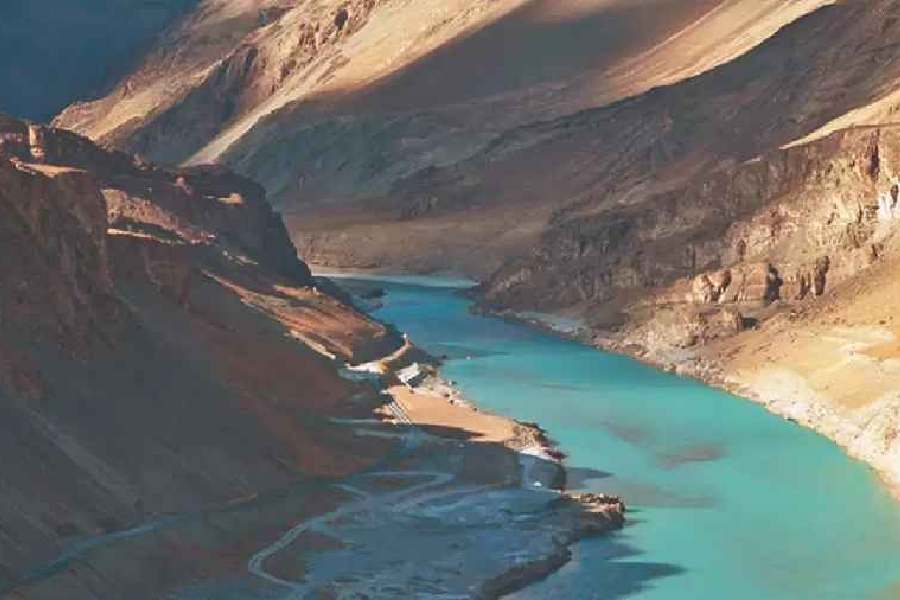Pakistan on Thursday declared that any attempt by India to divert water allocated to it under the Indus Waters Treaty would be considered an act of war, following New Delhi’s move to place the 60-year-old pact in abeyance.
The warning came after a high-level meeting chaired by Prime Minister Shehbaz Sharif.
The country has also blocked its airspace for Indian airlines, closed the Wagah border crossing, and suspended all trade with India.
But why has Islamabad taken such a beligerent stand over the treaty?
Flows of the Indus, Jhelum, and Chenab form the backbone of Pakistan’s agriculture, its cities and its energy infrastructure and right now they do not have a substitute for these waters, suggested an expert in a Pakistani media report on Thursday.
“While the physical and political limits on disruptions by India are real, the erosion of treaty protections still matters. This is not because water will stop tomorrow, but because the system it supports was never built for uncertainty. The flows of the Indus, Jhelum, and Chenab are the backbone of our agriculture, our cities, our energy system. At this moment, we simply do not have a substitute for these waters,” wrote Hassaan F. Khan, assistant professor of Urban & Environmental Policy (UEP) and Environmental Studies (ENVS) at Tufts University, in the Pakistan newspaper Dawn.
In March, the Telegraph Online had reported that Pakistan was bracing for an unprecedented water crisis as the Kharif season (April to June) approached, compounding fears for the country’s agriculture and food security.
With a looming 55 per cent water shortage and no reserves in major dams, irrigation planners are facing an uphill battle.
“A more pressing concern is what happens in the dry season when the flows across the basin are lower, storage matters more, and timing becomes more critical,” wrote Khan.
The World Bank brokered treaty came into existence in 1960 to resolve water disputes between the two countries arising because of Partition. India halted water flow in 1948 unilaterally and this led to World Bank mediation.
Through three wars, minor conflicts and diplomatic impasses, the treaty has continued.
The treaty divided the six rivers of the Indus Basin. India received the three eastern rivers (the Ravi, Beas, and Sutlej). Pakistan received the three western rivers (the Indus, Jhelum, and Chenab) which account for the majority (almost 80 per cent) of the shared basin’s water.
India retained the right to use Indus, Jhelum and Chenab waters for hydropower and limited irrigation.
The Indus, Jhelum, and Chenab rivers carry massive volumes of water during the snowmelt season (May–September). But India cannot control due to its limited-capacity and dams like Baglihar and Kishanganga.
These dams allow only minimal influence over flow timing, not volume. Disrupting the high-flow during snowmelt would risk flooding upstream Indian regions.
But as Hassaan says, India is not allowed to construct a dam to store or divert flows, per treaty terms.
India already maximises its use of the eastern rivers (Ravi, Beas and Sutlej), so further action there would have limited downstream effects.
In March, the Indus River System Authority (IRSA)’s advisory committee allocated water only for drinking in April, during a decision last month. So the real concern for Pakistan lies in the dry season, when water flow is lower, storage becomes crucial, and the lack of treaty-imposed limits on India's actions could have a more noticeable impact.
But India cannot unilaterally withdraw from the Indus Waters Treaty (IWT) under international law, according to various reports. The treaty lacks provisions for suspension and both countries have to go to an international court of arbitration.
For now how big a damage will it be?
“No Indian action will create a downstream humanitarian disruption or water crisis in the near term," strategic affairs expert Brahma Chellaney wrote on X. "Pakistan will still receive the lion's share of the Indus waters, but a withdrawal will free New Delhi from its legal obligations under a treaty that hangs like the proverbial albatross from India's neck."










